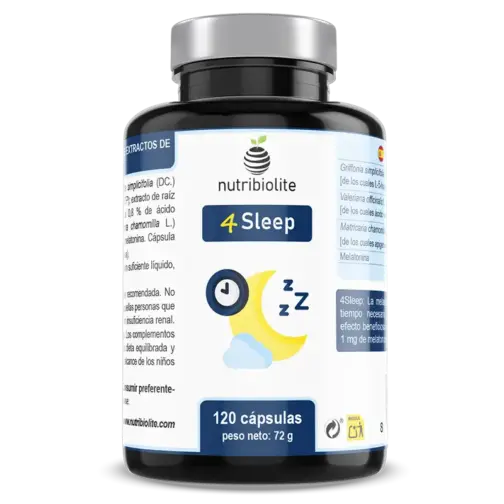A recent clinical trial published in Scientific Reports 2025(study in Scientific Reports 2025) explored the effect of night-time melatonin on inflammatory and oxidative markers in patients on peritoneal dialysis. Forty-four participants received either 5 mg melatonin or placebo before bedtime for ten weeks. The results showed that those taking melatonin experienced a significant reduction in markers such as malondialdehyde (MDA), hypersensitive C-reactive protein (hs-CRP) and pentosidine, all of which are related to oxidative and inflammatory processes that can interfere with sleep quality. Although the study focused on a specific group of patients, these findings reinforce the role of melatonin as a natural modulator of night-time internal balance.
For those seeking more stable nights or who feel their sleep cycle has been disrupted by stress, hormonal changes or ageing, this evidence offers a hopeful outlook. Maintaining habits that support your own melatonin production may be key to a deep and restful night’s sleep.
Melatonin, much more than a sleep hormone
Melatonin is mainly known for regulating the circadian cycle, the biological clock that marks the times of wakefulness and rest. Its production depends directly on ambient light and decreases with age, stress and shift work. According to EFSA (European Food Safety Authority), a low dose administered before bedtime helps to reduce the time it takes to fall asleep without causing dependence or drowsiness the following day.
The study also showed that melatonin can help modulate inflammatory and oxidative processes during the night, factors linked not only to well-being but also to how we feel when we wake up. Thus, maintaining adequate levels makes sense beyond the simple act of sleeping.
Stable nights require gentle routines and physiological support
Getting a good night’s sleep rarely depends on a pill alone. Experts agree that preparing the body for rest begins long before closing the eyes: light dinners, dim lights and regular schedules are quiet but powerful allies. In addition, including foods rich in tryptophan (such as oatmeal or banana) can promote endogenous synthesis of both serotonin and melatonin.
From the age of 40 or in the face of prolonged periods of stress, this rhythm can be altered. In these specific cases, reinforcing the natural route to sleep through combined strategies is even more relevant.
4Sleep supports your physiological pathway to sleep
At times when the internal clock loses rhythm due to external causes such as jet lag, changing shifts or different hormonal stages, it makes physiological sense to turn to external support. 4Sleep, developed by Nutribiolite in accordance with current European recommendations, combines 1 mg melatonin, recognised by EFSA for its timely pre-sleep action; 5-HTP extracted from Griffonia simplicifolia, a direct precursor in the serotonin-melatonin pathway; together with standardised extracts of valerian and chamomile, traditional plants whose relaxing effects have been scientifically evaluated.
By maintaining safe doses and avoiding unnecessary additives, this formula supports the body’s natural mechanisms to promote smooth transitions between wakefulness and rest without causing dependence or residual sensations upon awakening. It is a supplement aligned with what science describes as supporting the internal biological rhythm when other habits are not enough.

Melatonin 1 mg and 5-HTP with relaxing herbs.
Frequently asked questions about melatonin sleep and 4Sleep
How do I take 4Sleep correctly?
Take one capsule about thirty minutes before going to bed with water. Keep regular schedules to enhance its physiological effect along with quiet pre-sleep routines.
How does 4Sleep differ from other melatonin-only supplements?
Unlike melatonin-only or high-dose products, 4Sleep combines a safe dose (1 mg) with plant-based 5-HTP and standardised valerian and chamomile extracts to support both the initiation and natural maintenance of a good night’s rest.
Does it produce residual drowsiness or a hangover the next day?
It does not cause daytime drowsiness or dependence thanks to its natural ingredients in line with the recommendations of the European authorities. It allows you to wake up mentally clear after stable nights.
Why is it important to use standardised extracts?
Standardising means always guaranteeing the same active quantities (such as apigenin or valerenic acid) in each capsule, ensuring consistent quality batch after batch.
When does it make sense to use a supplement like this?
It makes sense when external factors affect your natural cycle (prolonged stress, long journeys or changing schedules). It does not replace good nocturnal habits but complements them physiologically when they are not enough on their own.
This content is informative and is not a substitute for the advice of a health professional.
















